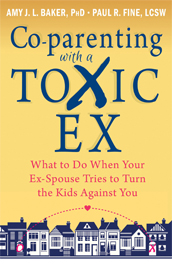3 Ways To Resolve Child Support And Access Issues

- This blog contains affiliate links, which we may receive a commission for purchases. The decision is yours, whether or not you decide to buy.
When parents separate, whilst it may be relatively simple to divide up assets, it can be far more difficult to divide responsibilities when it comes to children. Deciding who and when each parent sees the children and how much money each parent provides for their upkeep are the two main areas of contention.
Here, family law solicitor David Berridge explains several options for resolving issues around child support and child access.
Make a decision yourselves
If speaking to each other as parents always seems to end up in a row, try communicating in writing. This makes it easier not to bring up other issues that aren’t directly relevant to your children. If you can communicate together, without the need for anyone else to get involved, then eventually you should be able to make an agreement that is fair.
Of course, to do this, you must both be willing to compromise and to put the needs of your children before your own issues with the other parent. If, for example, you are able to come to a decision regarding arrangements for who will see the children and when, then make a written record of what has been agreed and when it was agreed. Whilst it won’t be legally binding, it will help to back up what has been agreed if this is later disputed or if one of you goes back on the agreement.
Try mediation
Mediation can often be a requirement for separated couples to at least try when divorcing. Many couples will find this extremely useful when arranging children issues too, as it can take far less time and money than going to Court in order to make a decision.
A mediator will be able to record what has been agreed for you but again, this will not be legally binding until an official parental agreement has been made by a solicitor or a child arrangement order has been granted by a judge.
One example of where mediation can be particularly useful is where one parent does not want to look after the children overnight or is reluctant to pay towards their upkeep. By finding out what their issues around this are, a deeper understanding can help inform a solution to the situation which keeps the best interests of the children in mind.
Go to Court
In my experience, the first thought of most parents when it comes to arguments and disagreements over anything to do with their children is
“Will I have to go to Court to sort this out?”.
The thought of taking your children’s other parent to Court can be unappealing in several ways. Firstly, you might not actually want to make the disagreement that serious and formal. Then, there’s the cost to consider and perhaps most pertinently, what might happen if you were to lose a case.
David Berridge is a family law solicitor who specialises in all aspects of family law. A Partner, David works for regional law firm Bray & Bray Solicitors www.braybray.co.uk which has four offices across Leicestershire.
PHOTO CREDIT: DANIEL FOSTER
You may also like
Parenting books
Buy now from Amazon
Podcast
If you’re looking for some straight-up, positive advice on topics that affect your daily life, then check out The Sue Atkins Parenting Show. Each week Sue bare will discuss every possible aspect of your parenting challenges, from weaning to whining, boundaries round technology to stroppy teens. You’ll get practical tips, techniques and advice that really work- and it’s all totally free.
Articles
- 5 Ways To Parent With A Narcissist
- How To Be Great Parents Through Separation And Beyond
- Divorce From A Child's Perspective
Videos
Practical advice and tips from professionals on what to do with issues and challenges around divorce from parenting to finance.
Events
Practical tips & advice designed to help people going through divorce, whether online or in person.
Useful links
Here's a selection of organistaioins from parenting to finance to help you with your divorce.
Legal professionals
Related Posts
-

Most Common Age for Divorce in the UK and the Key Reasons Behind It
-

Reclaiming Joy After Divorce: Small Daily Rituals That Make a Big Difference
-

Navigating Social Media During Separation: Essential Dos and Don’ts in the UK
-

Is Silence Destroying Your Marriage? How Poor Communication Leads to Divorce (And What You Can Do About It)
-

When Is the Best Time to Start Family Mediation in the UK? | Guide for Separating Couples

.jpg)

.jpg)



.jpg)

